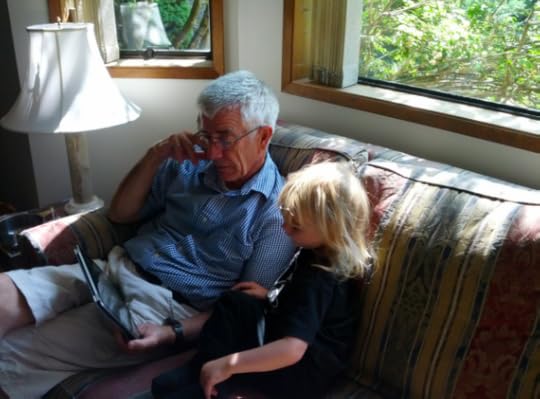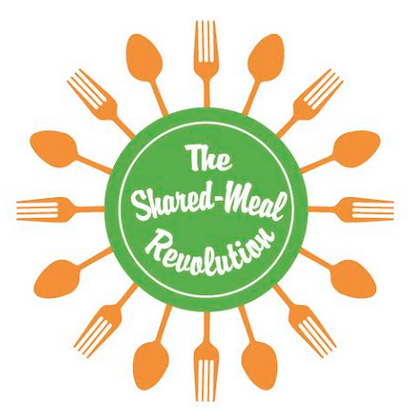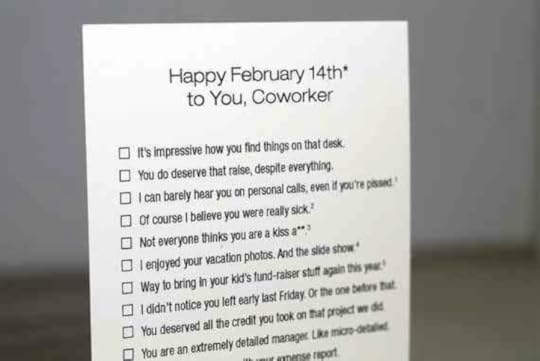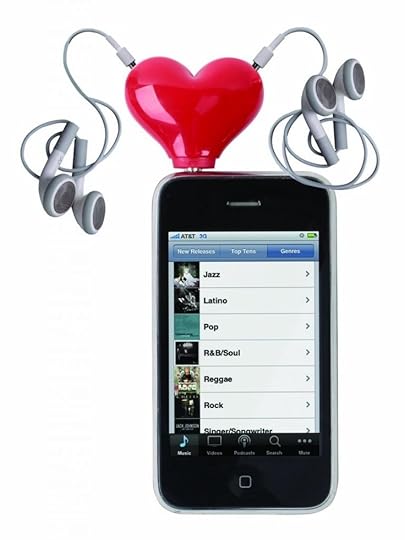Randi Zuckerberg's Blog, page 55
January 27, 2014
Why Sharing Meals Still Matters
I grew up in Connecticut in a small city named Bristol (home of the ESPN sports network). I have six brothers (one is my twin) and four sisters. My brother Carl and I were the youngest of eleven children. There were so many of us that we spanned two generations. My parents were loving, modest, working-class people who had their plates full running a household often bursting at the seams with activity. Overseeing the lives of their children required thoughtful planning, a sense of humor, and a whole lot of patience.
My parents used the family meal ritual as one strategy to keep us all connected with one another. They didn’t call it a strategy or say we had a shared-meal plan (per se), but every evening at five o’clock everyone would be present at the dinner table. After- school and personal activities were scheduled around our daily meals. My childhood was happy and filled with a lot of love and laughter. I believe that the meal ritual I enjoyed growing up was a major factor.
Shared meals mattered a lot back then.
As I grew older, married, and raised my daughter and son, I saw how our lives were becoming increasingly more complex as the years passed. Especially when my kids were in high school, it was challenging to fit in one meal a day somewhere in our schedule. But since we needed to stay connected somehow, we muddled through flexing our schedules to get together, and found time for a meal together most of the time, although we didn’t use a plan.
Shared meals still mattered, in fact, they mattered even more than when I was a kid.
After my mother passed away from Alzheimer’s disease in 2000, I felt a little lost. I starting getting together with people with whom I had lost connection, and through these mealtime conversations rediscovered my passion for the shared-meal ritual. During this time, in my early forties, I went back to college and studied human development, researching about the many powerful ways a shared-meal ritual can help our lives to feel more joyful and balanced.
After learning so much about why shared meals matter in our complex and wired society, I decided to write a book and started The Shared-Meal Revolution. This revolution is a social movement to help people gain awareness about the many health, social, psychological, and other benefits that can be experienced through the simple act of a daily shared meal ritual.
Shared meals matter to everyone for many reasons. Here are just a few:
• Children benefit from shared meals because they need routines to feel stable and secure. They also need positive role modeling to make healthy food choices.
• Shared meals benefit parents because it helps create unity in the home, build relationships with each another, and helps parents feel a sense of contentment that they are taking care of their families.
• A daily shared meal benefits couples because they need time together after long days apart to nurture their relationship, and sharing a meal at the end (or the beginning) of the day provides that time and space.
• Single people of any age, especially those living alone, need opportunities with other people to keep from being isolated. Getting together with someone else at least one time a day over a meal is a way to keep from being cut off from the world.
I used to think that seeking more “joy” was kind of corny. But really, what’s so corny about finding joy? Isn’t that what life is about? I also wondered what really makes a “balanced” life. Since seeing how shared meals give me that daily dose of joyful sweetness, and breathing a sigh of relief every day around a table eating delicious food and feeling the warmth of people I love around me, I no longer wonder.
Life really shouldn’t be all work and no play. We have to have balance or we might as well be robots. Sharing a meal every day is one of the best things you can do to improve your life. In many households today, there is fierce competition – overcrowded work and activity schedules, distracting technology, and an emphasis on efficiency over quality time – keeping us from sharing a daily meal with others. Life is full of many wonderful adventures. But you might say that while we’re having so much fun, mealtimes are getting nudged off the table. We need something to help us keep mealtimes happening. Having a plan makes a lot of sense.
Social media is a wonderful innovation, and I enjoy using it very much. But we can’t rely on social media to handle the important details of nurturing relationships. We also need to practice speaking with other people every day to keep the art of conversation alive (not a small matter for the youngest and growing generations who have grown up in the digital world).
So as you can see, in our complicated and beautiful world, it’s now that shared meals matter most.
Posted on 1/27/2014
Written by Carol Archambeault
Read more about the benefits and best practices of a shared-meal ritual, and how you can create your own shared-meal plan in Carol’s new book, The Shared-Meal Revolution: How to Reclaim Balance and Connection in a Fragmented World through Sharing Meals with Family and Friends. Read Carol’s blog Shared Meals Matter, and join The Shared Meal Revolution by visiting www.shared-meals.com.



 by
by 
The post Why Sharing Meals Still Matters appeared first on Dot Complicated.
Are iPads The New Ball Point Pen?
When I started school in the 1940s, students were taught to write with steel nib pens using ink from inkwells that sat on each school desk. Learning to write with an ink pen was a laborious business. One had to learn penmanship and to write without blotting or smearing one’s work. It was very strictly taught but it was much of a disaster for a naturally sloppy person like myself. The only diversion was when there was a girl with pigtails sitting in front of me (use your imagination!). Ball point pens started to come into common use in the mid 1940s, however the school system resisted their introduction for years– the argument being that, by using this new technology, the students would lose the finer arts of penmanship. Imagine: putting words on paper without having to worry about smudging or blotting!
Needless to say, ballpoint pens began to be accepted after a few years and have been in use ever since. Penmanship has suffered but our ability for written communication has greatly improved.

The author reading to his grandson
Television was another example of new technology. In the 60’s, the use of TVs expanded exponentially. In our family, we did not get a TV for years because of the banal programming. It was better to read books. However, we found that our two boys were spending more time at friend’s houses, not socializing, but watching cartoons. We had to bow to the inevitable and get a TV, but with controlled watching hours and programming.
There have been similar breakthroughs with communication and learning in the past. From the around 6th to the 19th century, writing was generally done with a quill pen. When the steel nib pen was introduced in the mid 19th century, there was a fear that we would forget how to carve our own quills from goose feathers! Also, think of the invention of the printing press; new technology putting thousands of monks out of work!
We have now been presented with more new methods of communication and learning: computers, tablets, smart phones etc. There have been some arguments that preschoolers should be kept away from this technology until they are older; others that we should introduce these children to it as soon as possible because it is the way that their world is going. The fear on both sides seems to be that the children will find these new ways of communicating and learning to be too mesmerizing and time wasting by mindlessly watching cartoons (some with commercial content), gaming and spending too much time on Facebook etc. These fears are valid but can be dealt with by the proper introduction of this technology to our preschoolers. Who better to do this than librarians?
Will this technology last? Will it fade away and will we go back to “traditional” forms of learning and communications? If parents think so then, by all means, restrict children’s usage of it and recognize it as a passing fancy. However, if you think that it is and will be part of our and their new world, then it will be best for our children to learn how to use it responsibly early in their life, to be able to use it as a learning experience, to be able to distinguish between entertainment, learning and manipulation (such as product placement) and, most important, to be able to distinguish between the digital world and real life.
Once children start school, they will be exposed to computers. For preschoolers, the best place to learn how to cope with this new technology is through your local library with tech savvy librarians. So, take your children to your local library, make use of its preschool programs and give your preschool children a proper introduction to the digital world.
Posted on 1/24/2014
Written by Ed Campbell
Ed Campbell was born in 1938 and thus saw the transition from ink pens to iPads. He started his working life as a logger on the west coast then as a miner in Northern Manitoba. After deciding that this was not the life for him, he married the lovely Roberta, finished university, became an engineer, had four children and ended his engineering career as an advisor to (South) Korea Electric on their CANDU nuclear power plant program. Roberta and Ed now live on Vancouver Island and enjoy reading to the grandchildren, paddling kayaks, hiking, chopping firewood and learning how to survive in the digital age.



 by
by 
The post Are iPads The New Ball Point Pen? appeared first on Dot Complicated.
January 25, 2014
12 Inappropriate Valentine’s Day Cards
Getting tired of seeing the usual cheesy Valentine’s Day cards everywhere you go? Look no further for the quirkiest, most inappropriate, and funniest cards we could find on Etsy – they’re not conventional, to say the least!
1) I love you so much I’d never tag you in a bad photo on Facebook
2) We go together like tuna fish & cigarettes.
3) Our sex is better (Than 50 Shades of Grey)
5) Valentine’s blows. Let’s get drunk.
7) If I had to live without you, I’d shoot myself.
8) Bitch (censored), you best be my Valentine
10) Wanna bone?
11) I’m so glad you’re as random as me.
12) Passive-aggressive valentines for your co-workers:



 by
by 
The post 12 Inappropriate Valentine’s Day Cards appeared first on Dot Complicated.
January 24, 2014
Valentines Day Ideas from Pinterest
Believe it or not, Valentines Day is just around the corner – and to us, that’s an excuse to head over to Pinterest to browse drool-worthy chocolate recipes and heart-shaped ideas. Here are some of our favorite pins to sweeten your Valentines Day:
Bacon & Egg Toast with Cupid’s Touch

Heart-Shaped Headphone Splitters for Love Tunes & Rom Coms
A Strawberry Twist on the Classic Mimosa
Clever QR Code Necklace with a Message
We Can’t Get Enough of… Red Velvet & Mason Jars
Too Much Pink? Try this Hearty Pizza for Your Valentine
Opposites Attract: Balsamic Cherry, Dark Chocolate, and Brie Grilled Cheese
And for those who agree with Grumpy Cat…
How are you celebrating (or not celebrating) Valentines Day? Tell us in the comments below!



 by
by 
The post Valentines Day Ideas from Pinterest appeared first on Dot Complicated.
Love In The Tech Age, From A Sex And The City Writer
Cindy Chupack is a screenwriter who has won three Golden Globes and two Emmys for her work as a writer/executive producer of HBO’s Sex and the City and writer/co-executive producer of ABC’s Modern Family. Below, she shares her insights from her new comic memoir about marriage, “The Longest Date: Life as a Wife.”
1. How has technology played a role in your love story?
I almost forgot about this until you asked the question, but when Ian and I first started seeing each other in NY, Ian decided we should not text or email, we should only communicate by phone or in person. Neither of us had done that before in the context of a relationship, and I’m not sure what prompted Ian to make that rule, but it was a good one, because it forced us to actually have conversations and get to know each other between dates. And we stuck to that rule for at least the first six months, which meant we had to CALL each other to make a date, and we had to CALL to cancel. I wrote in my wedding vows (which are in the book) about one date I tried to cancel that probably changed the course of our relationship, so in retrospect, I’m glad I wasn’t able to cancel by text or email:
“I was thinking about that first night you cooked for me, which included the first of many cheese lectures. You like to say that’s how you wooed me, but that’s not exactly what happened. What happened was that it was very early in our relationship. In fact, we weren’t “a relationship.” We were, at best, an extended booty call (and sometimes I went to your place when you were drunk instead of you showing up at mine, so we weren’t even doing a booty call right), which is why I almost cancelled. I was feeling tired and not in a great mood and I didn’t feel like dressing up or putting on makeup and I knew we didn’t have the kind of relationship where I could just come over and be myself, and I felt certain we never would, and I was thinking maybe I’d never have that, and I think I said pretty much all of that when I called to cancel. And I remember you replied, ‘You’re a freak, but okay.’
And then we hung up. And I sat there wondering if I was a freak, which had never really occurred to me before. So I decided to go over, no makeup, not in a great mood, and as soon as I arrived I saw you had all the ingredients you’d bought at the farmer’s market on the table: the raw-milk white cheddar, the dried mushrooms reconstituting or whatever they do, and everything chopped and ready. And I’d had men cook for me before—you know, the one pasta dish they know how to make to impress a date—but this was different. You knew what you were doing, and you could do it in the tiniest of New York kitchens, and I never would have figured you for such a chef, and we had a lovely night.
And I think now about how many of those nights we’ve had since, and how there is nobody I would rather talk to when I am feeling less than, nobody I would rather come home to after a hard day, and how wrong I was about you and us and what we could become. And unlike most people, I love being wrong. I love thinking I know the ending and then being surprised.”
2. What do you think are the biggest challenges that technology and social media bring into relationships today?
I think social media makes it easy to THINK you know a person (you can learn so much about people before you go on a first date) and you can dash off a quick message instead of actually talking, even just with email and texting back and forth you can feel you’ve already had a relationship before you meet in person. But marriage eventually requires co-existing in the same space, so although technology can make it easier to connect, you might not really be connecting until you live together, and you might not know how the chemistry is until you are together in person, so I would say don’t extinguish or fan the flames of love online — do it in person!
Also, in a marriage, I start to really resent and want to limit the time that my husband and I are online or distracted by technology when we could just be hanging out and talking to each other, and I don’t want to be the kind of parent who isn’t there for my child because I’m sending off one last email either, so I think as adults, we might have to start going on social media/technology diets. When at home, be at home. When at work, be at work. That’s what I’m trying to do in 2014.
3. What do you think are the biggest misconceptions about marriage today?
You got your “happily ever after!” Sorry, marriage, is not the end of the story, it’s another beginning. That’s the good and bad news.
That your spouse should “complete” you. Ideally you were complete already, and your spouse is someone you want in your life, not someone you NEED in your life.
That trying to have a baby is a joyful thing! Trying, especially if you’re a bit older when you marry, can be very trying, and emotionally draining, and it’s not always easy for a couple to stay on the same page when the going gets tough, but it’s worth it.
4. In your own marriage experience, what harsh realities surprised you most?
I was surprised by how hard it was for me to truly let someone else into my life. I wanted to the guy, but I didn’t want his things. I thought we made a huge mistake getting a huge dog, but I turned out to be very in love with our Saint Bernard (so sometimes you lose a negotiation, and you’re glad you did.) I didn’t realize that although I was happy to make my own living, to be self-sufficient, to be able to marry who I wanted to marry, not who I need to marry (financially) — I sometimes have feelings that are a bit unresolved (and maybe unattractive) about making more money than my spouse.
5. Any advice for those who are trying to find love through online dating?
I thought the best part of online dating was being honest with yourself in filling out the form about what you want, what you’re looking for, who you are, etc. I think that process is a good one even if you’re not online dating to clarify for yourself (and your friends) what you are looking for and what you think you bring to the table!
6. Where can our community buy your book?
There are links from my website, cindychupack.com, but it’s available online or at your favorite bookstore! It’s also available as an audiobook which I recorded.
Posted on 1/24/2014
Cindy Chupack is a screenwriter who has won three Golden Globes and two Emmys for her work as a writer/executive producer of HBO’s Sex and the City and writer/co-executive producer of ABC’s Modern Family. Several episodes she penned – Little Bo Bleep (Modern Family) and Evolution, Attack of the 5’10″ Woman, Just Say Yes, Plus One is the Loneliest Number, I Love a Charade, and Splat! (Sex and the City) — were individually nominated for Writer’s Guild and/or Emmy awards. Chupack also worked on Everybody Loves Raymond as a writer/co-executive producer. Author of New York Times bestseller “The Between Boyfriends Book,” her new comic memoir about marriage “The Longest Date: Life as a Wife” was just released by Viking. Currently writing a TV pilot based on “The Longest Date” for FOX, Cindy will write/exec produce, and Jake Kasdan will direct/exec produce for 20th Century Fox TV. Cindy is also preparing to direct her first feature. For more information visit cindychupack.com



 by
by 
The post Love In The Tech Age, From A Sex And The City Writer appeared first on Dot Complicated.
January 23, 2014
4 Steps To Trim Credit Card Debt In 2014
With tax season coming up, it’s easy to get nervous about finances. Taxes force us to look deeply at our spending decisions over the past year and possibly shell out even more money. One easy way to start is by tackling credit card debt.
We all know that you should pay off your card in full every month. But maybe you went overboard for a month or two and now you’re saddled with credit card debt, complete with those nasty interest payments. Here’s our take on how to get out:
1. Make a plan. Mint.com has a guided experience that will walk you through the steps you need to take to pay off any debt, including credit card and student loan debt. Independently, consumers can take the first step to paying off their credit card debt by making a plan that complements their budget and doesn’t overextend finances. After totaling up your debt, take a look at spending. Subtract expenses from monthly income and see what’s left to start paying down debt. If this amount is too small, look for ways to reduce spending such as canceling or modifying the cable subscription, buying generic versus name brands or carpooling as ways to cut back.
2. Pay down credit cards. Sort credit cards from highest to lowest interest rate. Pay off the balance with the highest interest rate first to help increase the payments you can make on the remaining cards. Interest is just money flying out of your account, people!
3. Pay more than the minimum. Break the habit of paying only the credit card minimum required each month. When possible, double a minimum payment to reduce interest rate expenses over time. If you’re getting a tax refund this April, consider using it to make an extra payment on your debt, too.
4. Curb spending. Stop using credit cards when paying down debt. Leave the credit cards at home and avoid temptations like cash back and purchase rewards. Paying for everything electronically is a good way to cultivate a list of where your money’s going– you can check your bank statement to see exactly what you spend money on. Paying with PayPal helps with that, too– you can pay friends back over the app and make a note to remind yourself why you owed them money. Once you have a good handle on where your money is going, you’ll be able to isolate areas where you can cut back.
Posted on 1/23/2013
Disclosure: PayPal is a sponsoring partner of the Dot Complicated book tour



 by
by 
The post 4 Steps To Trim Credit Card Debt In 2014 appeared first on Dot Complicated.
Pope Francis Endorses Internet As A Gift From God
In a message for the Catholic church’s Global Communications Day, the Pope called the Internet a gift from God for social outreach. Pope Francis, the recently ordained Jesuit Pope, has been making headlines all year by emphasizing his focus on the poor and his commitment to social justice.
“The speed with which information is communicated exceeds our capacity for reflection and judgment, and this does not make for more balanced and proper forms of self-expression,” he reflected. But spending too long online, he added, “can help us either to expand our knowledge or to lose our bearings.”
He also said that “While these drawbacks are real, they do not justify rejecting social media; rather, they remind us that communication is ultimately a human rather than technological achievement.”
Yes! We agree! Social media, and the Internet is general, is all about how you use it. And while it seems odd to think of the Internet as being connected to religion, it’s awesome to see a religious leader addressing the real issues and concerns in the world today. A great message on being mindful of our use form an unlikely source. Click here for the full transcript of Pope Francis’ speech.
Written by Liz Wassmann
Posted on 1/23/2014



 by
by 
The post Pope Francis Endorses Internet As A Gift From God appeared first on Dot Complicated.
Arnold Schwarzenegger Pranks Gym for Charity
Arnold Schwarzenegger played a prank on Gold’s Gym members by going undercover as a fitness instructor. His not-so-convincing disguise wasn’t just for laughs and giggles – he wanted to raise awareness for the After-School All-Stars, a charity that supports after-school programs to help kids around the country succeed.
Schwarzenegger walked around the gym offering “professional” fitness advice. Here are our favorite quotes:
-”Stop being a baby. This is Gold’s Gym. This is not a baby’s gym.”
-”Remember, we do everything in reps. So you have to do ten reps of water drinking.”
-”Don’t laugh. This is a serious business.”
Would you recognize him?



 by
by 
The post Arnold Schwarzenegger Pranks Gym for Charity appeared first on Dot Complicated.
January 22, 2014
Is Instant Gratification Responsible For My Child’s Neediness?
The past hour I’ve been trying to (mindfully, of course!) make dinner, go through the mail, empty the lunch boxes, organize the things I bought at CVS…and I’ve got nothing done. I’ve been busy playing a game of Ping-Pong. No, I haven’t been hanging out in my garage with a beer and a small paddle in hand. Rather, I’ve actually been the ball in this game of Ping-Pong, between my two daughters, going back and forth, back and forth through a series of, “Mom, can you come here?” and “Mom, I need help!” My daughters are 7½ and 10 years old. They are very capable; I’ve raised them to be this way. For years they have been very self-sufficient: both of my girls have made their beds, gotten themselves dressed, washed up, and cleaned their room, put away their laundry, and can make themselves breakfast…just to name a few of their independent abilities. I know they are capable beings. So why is it that I find myself so frustrated when they are constantly, and I mean constantly, asking me to “Come here?”
I am a really good mom: I work at being patient; I try not to raise my voice; I guide them to be their best selves; I honor their uniqueness; I’m fun and we have dance parties; I cook with them; and I snuggle them in their beds. But I think what makes me the best mom I can be is that I practice mindfulness.
I breathe. I strive at being present. I am aware of when I get caught up in my own “stuff.” I practice responding and not reacting. I try to stay connected to my intentions.
So, when being mindful, I judge myself for getting annoyed when they ask for help all the time. I think I get frustrated because it appears that they are not attempting at slowing down, stopping to think, and trying to solve the problem on their own. I have tried teaching them this; oh believe me, I am all about the teachable moments. Over and over again, I help them, while reminding them that helping does not mean doing everything for them or giving them the answer on their homework. Helping means that I give them the tools to figure it out on their own. Isn’t that what a mindful parent is supposed to do…to provide your child with tools to help them find their own way in the world?
I believe kids today have grown used to having instant gratification. On a societal level, I think it’s easy to blame this on technology and social media; almost everything they could need is at their fingertips. But in my home, I can’t credit social media and technology as the problem; it doesn’t really apply to my own kids. Yes, they have an iTouch…but they don’t even use it every day. They don’t even watch TV every day. They don’t have their own iPad, computer, Kindle or any other device. I know…they are pretty atypical kids in 2014. But somewhere, and not from me, they’ve learned that they don’t want to think for themselves. I have actively tried raising them to be independent, capable, thoughtful, inquisitive… I can see why I am getting so frustrated when being called over 100 times in 10 minutes!
I think I’m partly annoyed because chores and to-do lists are part of motherhood and interruptions make it difficult to get anything done. The other part, the bigger part, is that I would like for them to try to be more autonomous in their thinking. But then, I remember my practice…my mindfulness practice.
And I remember to stop. I remember to slow down. I remember to breathe. And I just notice the feeling of being frustrated. I experience it in my body as I feel the tingling under the surface of my skin. As I open my awareness to my frustration, I remember not to judge it. I tell myself, this is simply what frustration feels like. I remember that it’s not their fault – they are only young kids who are still learning to navigate their way in the world. I am blessed to have children; I wanted them. I specifically wanted two girls and I got them! And then I remember to welcome and honor the chaos that is the after-school-homework-hour and this game of Ping-Pong because this is exactly what I wanted, frustrations and all.
Once I remember to come back to my center, back into my body and out of my head, back to my breath and my intention, I remember to respond with kindness and compassion. Then I do my best to breathe into, and then release, any feelings of frustration that arise. I watch my experience rise and then fall without allowing it to take over and take me away from being the mindful parent I strive to be. I also remember to be grateful that they need me. One day, they might not turn to me or ask me for assistance, with anything. And when that day comes, I will be longing for an afternoon game of Ping-Pong.
Posted on 1/22/2013
Joree Rosenblatt has a Master’s in Counseling Psychology and is a mindfulness educator in the Bay Area. In addition to working at a K-8 private school teaching mindfulness to students, she teaches her original curriculum to adults, and onsite in corporations, in the Fundamentals of Mindfulness and Mindful Parenting. Joree’s true passion is raising her two daughters, mindfully of course…well, most of the time! Even though she already is a rock star mom, Joree practices mindfulness every day, and when all else fails, she remembers to take a moment and just breathe.



 by
by 
The post Is Instant Gratification Responsible For My Child’s Neediness? appeared first on Dot Complicated.
Is The Instant Gratification Era Responsible For My Child’s Neediness?
The past hour I’ve been trying to (mindfully, of course!) make dinner, go through the mail, empty the lunch boxes, organize the things I bought at CVS…and I’ve got nothing done. I’ve been busy playing a game of Ping-Pong. No, I haven’t been hanging out in my garage with a beer and a small paddle in hand. Rather, I’ve actually been the ball in this game of Ping-Pong, between my two daughters, going back and forth, back and forth through a series of, “Mom, can you come here?” and “Mom, I need help!” My daughters are 7½ and 10 years old. They are very capable; I’ve raised them to be this way. For years they have been very self-sufficient: both of my girls have made their beds, gotten themselves dressed, washed up, and cleaned their room, put away their laundry, and can make themselves breakfast…just to name a few of their independent abilities. I know they are capable beings. So why is it that I find myself so frustrated when they are constantly, and I mean constantly, asking me to “Come here?”
I am a really good mom: I work at being patient; I try not to raise my voice; I guide them to be their best selves; I honor their uniqueness; I’m fun and we have dance parties; I cook with them; and I snuggle them in their beds. But I think what makes me the best mom I can be is that I practice mindfulness.
I breathe. I strive at being present. I am aware of when I get caught up in my own “stuff.” I practice responding and not reacting. I try to stay connected to my intentions.
So, when being mindful, I judge myself for getting annoyed when they ask for help all the time. I think I get frustrated because it appears that they are not attempting at slowing down, stopping to think, and trying to solve the problem on their own. I have tried teaching them this; oh believe me, I am all about the teachable moments. Over and over again, I help them, while reminding them that helping does not mean doing everything for them or giving them the answer on their homework. Helping means that I give them the tools to figure it out on their own. Isn’t that what a mindful parent is supposed to do…to provide your child with tools to help them find their own way in the world?
I believe kids today have grown used to having instant gratification. On a societal level, I think it’s easy to blame this on technology and social media; almost everything they could need is at their fingertips. But in my home, I can’t credit social media and technology as the problem; it doesn’t really apply to my own kids. Yes, they have an iTouch…but they don’t even use it every day. They don’t even watch TV every day. They don’t have their own iPad, computer, Kindle or any other device. I know…they are pretty atypical kids in 2014. But somewhere, and not from me, they’ve learned that they don’t want to think for themselves. I have actively tried raising them to be independent, capable, thoughtful, inquisitive… I can see why I am getting so frustrated when being called over 100 times in 10 minutes!
I think I’m partly annoyed because chores and to-do lists are part of motherhood and interruptions make it difficult to get anything done. The other part, the bigger part, is that I would like for them to try to be more autonomous in their thinking. But then, I remember my practice…my mindfulness practice.
And I remember to stop. I remember to slow down. I remember to breathe. And I just notice the feeling of being frustrated. I experience it in my body as I feel the tingling under the surface of my skin. As I open my awareness to my frustration, I remember not to judge it. I tell myself, this is simply what frustration feels like. I remember that it’s not their fault – they are only young kids who are still learning to navigate their way in the world. I am blessed to have children; I wanted them. I specifically wanted two girls and I got them! And then I remember to welcome and honor the chaos that is the after-school-homework-hour and this game of Ping-Pong because this is exactly what I wanted, frustrations and all.
Once I remember to come back to my center, back into my body and out of my head, back to my breath and my intention, I remember to respond with kindness and compassion. Then I do my best to breathe into, and then release, any feelings of frustration that arise. I watch my experience rise and then fall without allowing it to take over and take me away from being the mindful parent I strive to be. I also remember to be grateful that they need me. One day, they might not turn to me or ask me for assistance, with anything. And when that day comes, I will be longing for an afternoon game of Ping-Pong.
Posted on 1/22/2013
Joree Rosenblatt has a Master’s in Counseling Psychology and is a mindfulness educator in the Bay Area. In addition to working at a K-8 private school teaching mindfulness to students, she teaches her original curriculum to adults, and onsite in corporations, in the Fundamentals of Mindfulness and Mindful Parenting. Joree’s true passion is raising her two daughters, mindfully of course…well, most of the time! Even though she already is a rock star mom, Joree practices mindfulness every day, and when all else fails, she remembers to take a moment and just breathe.



 by
by 
The post Is The Instant Gratification Era Responsible For My Child’s Neediness? appeared first on Dot Complicated.

































